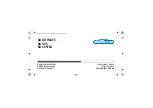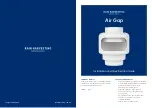
B.5.7 PakBus/TCP Password
Specifies the password that will be used to authenticate any incoming (server) or outgoing
(client) PakBus/TCP sessions. This password is used by the server to generate a challenge to any
client that connects to the PakBus/TCP service port. If the client fails to respond appropriately,
the connection will be terminated. If this password is blank (the default value), no authentication
will take place.
B.5.8 PakBus/TCP Client Address (1-4)
This setting specifies the IP address of an outgoing PakBus/TCP client connection that the NL241
should maintain. If the connection fails, the NL241 will retry that connection periodically until a
connection is made. No entry or a setting of 0.0.0.0 specifies that no client connection will be
made.
B.5.9 PakBus/TCP Client Port (1-4)
This setting specifies the TCP port of the outgoing PakBus/TCP client connection. Typically, it is
not necessary to change this entry from its default (range 1 to 65535).
B.5.10 PakBus Routes (read only)
This setting lists the routes that are known to the NL241. Each route known to the NL241 will be
represented by the following four components separated by commas and enclosed in
parentheses. The description of each component follows:
Port Number
Specifies a numeric code for the port that the router will use. It will correspond with one of the
following:
0
CS I/O
1
RS-232
100 PakBus/TCP Connection — If the value of the port number is 100 or greater, the
connection is made through PakBus/TCP.
Via Neighbor Address
Specifies the address of the neighbor/router that will be used to send messages for this route. If
the route is for a neighbor, this value will be the same as the address.
PakBus Address
Specifies the address that the route will reach.
NL241 Wireless Network Link Interface
59












































